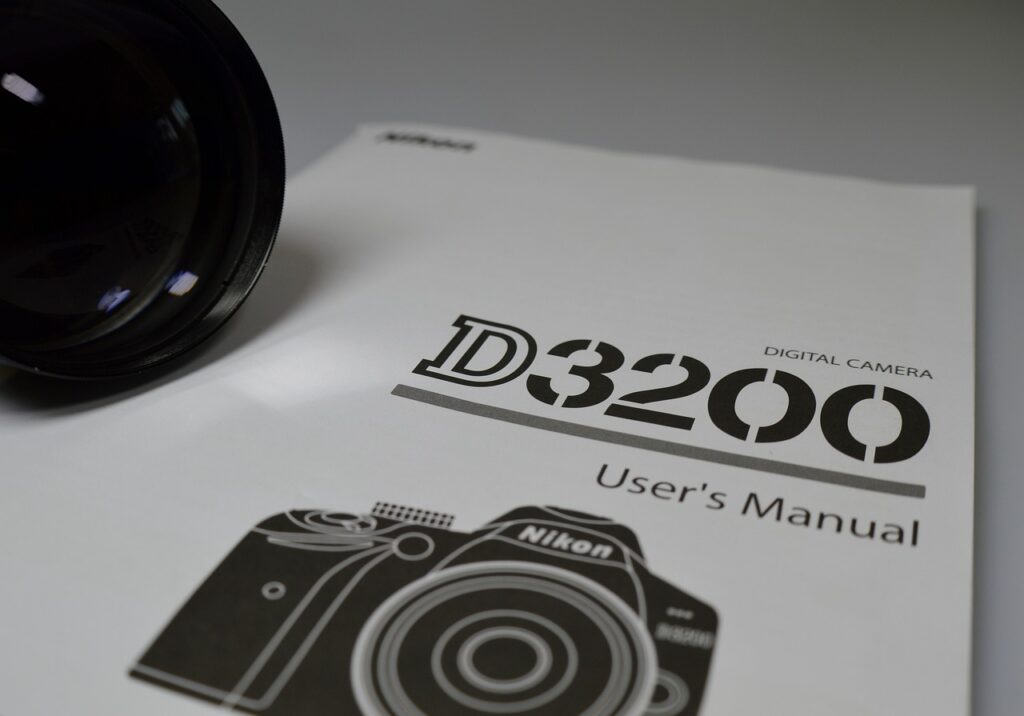Key takeaways
- Technical communications is a specialized field within the field of communications.
- A degree in technical communications can equip you with skills such as programming, content design, content strategizing, writing, editing, web content development, and more.
- You can pursue a degree in the field at an associate, bachelor’s, master’s, or doctoral level.
- A bachelor’s degree is the ideal entry-level qualification as it leads to higher-paying job opportunities and lower unemployment rates.
- University of North Texas, Texas Tech University, University of South Florida, and Iowa State University are just some colleges offering an on-campus bachelor’s in the field.
- Pursue a technical communications degree online from Arizona State University, Minnesota State University Mankato, University of Arkansas at Little Rock, and so on.
- Job opportunities with a bachelor’s degree in technical communications include Technical Writer, Editor, PR Specialist, Communications Consultant, and more.
Technical communication professionals are in high demand. As advancements in digital technologies grow, the need for professionals able to understand and simplify complex information is rising. A technical communications degree can enable you to do just that. In this guide, we discuss the program in detail, explore potential career opportunities, and list colleges from where you can pursue a bachelor’s degree in the field.
What is technical communication?

Technical communication is broadly defined as the ability to understand complex technical information and convey it to the users in a simple and easy-to-understand format. Simplified data or information is presented to specific audiences in a written format, through visual aids such as charts, presentations, graphic demonstrations, and so on.
Perhaps the most common example of technical communication is product or user manuals. A user manual not only contains visuals but also supporting text providing users with in-depth information for the setting up, installation, or use of a product or service. Other examples of technical communication include API manuals, press releases, white papers, Standard Operating Procedures (SPOs), technical reports, industry manuals, scientific papers, and more.
The following factors set technical communication apart from other forms of professional writing:
- The use of simple and easy-to-understand language, keeping industry jargon to a minimum.
- Writing for the intended audience as per their knowledge and level of understanding.
- Technical communication is outcome-driven, focusing on achieving a goal such as enabling users to build a bookcase, install software, or use a product or service.
What does a degree in technical communication entail?
A technical communications degree features a unique curriculum featuring courses covering a wide range of topics. Here, students build a wide range of marketable competencies in the field, including content strategy, information management, information design, and more. Technical communication is an interactive and dynamic field where each project is different, the intended audience is different thus requiring a unique approach to each project.
Thus, students enrolled in the program enjoy a blended curriculum featuring theoretical classes and project-based learning. By working on projects, they learn industry practices, gain industry recognition, and benefit from networking opportunities. Aspiring professionals can pursue a degree in the field at varying levels from an associate all the way to a PhD.
Associate’s degree in technical communications
An associate program lasts two years, featuring foundational courses in the field of technical communications. The program features courses in writing, editing, audience analysis, content design, and more. After graduating from an associate program, you become eligible for some entry-level roles in the field.
Bachelor in technical communication
A bachelor’s degree is a four-year program featuring an extensive curriculum in technical communication. Here, students undertake a variety of courses in information design, data visualization, project management, editing and writing styles and guidelines, digital publishing, audience analysis, and more. Through the program, you develop a comprehensive range of professional competencies, enabling you to pursue a wide range of job opportunities in the field.
Master’s degree in technical communication
A master’s degree spans 1 to 3 years and features advanced courses in the field of technical communication. Through the program, students develop niche-specific skills in the field enabling them to pursue advanced career opportunities such as executive and managerial level positions.
PhD in Technical Communications
A doctoral degree prepares technical communication professionals for roles in research or academia. Through the program, you develop the competencies needed to teach technical communication, research methodologies, research writing, and more.
Technical communication – Bachelor’s degree program details

At the undergraduate level, a bachelor’s degree offers more comprehensive learning, graduates have higher earning potential and enjoy greater job stability. According to a report Education Pays by BLS, the median weekly earnings of bachelor’s degree graduates is $1,493 and the unemployment rate is 2.2%. In comparison, associate degree graduates earn $1,058 per week on average, and the unemployment rate is 2.7%.
At the bachelor level, colleges and universities offer a Bachelor of Arts or a Bachelor of Science in technical communication. Though neither program is to be mistaken as better or worse than the other, there are slight differences in curriculum between the two.
The general education core in a bachelor of arts program features courses in liberal arts, humanities, and social sciences. BA programs focus on building professional competencies and skills such as communication and critical thinking. In comparison, a bachelor of science features courses in science, mathematics, and technology. The program focuses on building critical analytical and technical skills.
Typical program curriculum
No two colleges have the exact same program curriculum as course availability is largely dependent on faculty expertise. Thus, besides the variations in the university core curriculum and general education courses, students will also see some variations in the major-specific courses. However, since the end goal of a technical communication bachelor is to develop professional competencies in the field, programs across all institutions generally cover the same topic.
Here is a list of courses offered by different universities in a technical communications program. However, it is important to note that the list is included just to provide a reference as to the topics covered in a technical communications program.
- Technical Writing
- The Profession of Technical Communication
- Fundamentals of Writing for Digital Media
- Principles of Web Authoring
- Principles of Technical Editing
- Principles of Visual Communication
- Language, Philosophy, and Culture
- AI and Automation in Technical Communication
- Content Analysis in Technical Communication.
Specializations in Technical Communication
Technical communication is itself a specialized field within communications. Thus, colleges and universities rarely offer concentration tracks in a bachelor’s degree in technical communication. However, by choosing relevant electives pursuing, an internship, or undertaking specific roles in group projects, students can build specialized skills based on their area of interest. Here are some career specializations you can pursue in the field of technical communications.
User Experience Writing
User Experience Writing is broadly defined as writing for a variety of digital products including websites, apps, computer programs or software, and so on. As digital technologies grow and take over every aspect of our lives, the demand for UX Writers does too. The goal of UX-centered copy is to enable users to successfully navigate digital platforms and efficiently use the platform.
Courses related to UX writing can include:
- User Experience
- Content Strategy
- Copyright and Intellectual Property in the Digital Age
- Information in the Digital Age
Technical Writing
Technical writing encompasses writing clear and concise content for the purpose of conveying complex information to the consumer in an easy-to-understand format and language. This is a broad field that can include white papers, research papers, how-to guides, product manuals, instruction manuals, safety guidelines, and more. Some courses you can take to build competencies in the field include:
- Technical and Scientific Reports
- Technical Editing
- Advanced Technical Communication
- Content Strategy in Technical Communication
Medical Writing
Medical writing is an important field and medical writers are highly acclaimed for making remarkable contributions to health information management and reporting. Professionals in the field learn to put into simple terms the advancements being made in the healthcare industry. They report the findings from clinical trials, write peer-reviewed medical papers, write press releases, and grant proposal writing, publish detailed reports about the latest healthcare treatments, and more.
Some courses you can take to pursue medical writing include:
- Grant and Proposal Writing
- Visualizing Data and Information
- Scientific Thinking in Natural Sciences
- Special Topics in Technical Communication
Instructional Design
If you are passionate about educating people, instructional design is the field for you. Professionals in the field learn the process of creating educational materials. Material can include self-help guides, e-books, courses, training materials, and so on. This field focuses on both written and visual aspects of communication. Thus, courses to build expertise in this field can include:
- Visualizing Data and Information
- Instructional Design
- Instructional Video
- Directed Study
Web Content Development
Web content development includes writing, editing, and publishing content for websites. Professionals learn to tailor web content for the target audiences, conduct audience analysis, organize and customize content for different digital platforms, and more. Courses you can take to build concentration-specific skills include:
- Search Engine Optimization and Analytics
- Front End Development
- Issues in Digital Accessibility
- Social Media Infrastructure
Software Documentation
Software documentation is basically user manuals educating users on how to use, install, use, and update software. The goal of software documents is to improve user experience and offer help and guidance where needed. Additionally, software documentation also includes documents detailing every step of the decision-making process during software development. Some courses you can take to pursue software documentation professionally include:
- Information and Communications Technology
- Front-End Development
- Information Design
- Project Management for Information Systems
Admission requirements
Admission requirements for a technical communications program vary by college and the applicant’s prior qualifications. Those applying after high school graduation will need to submit:
- Highschool diploma or General Education Development equivalent
- High school transcript – minimum GPA + specific subject requirements may be present
- Standardized Test Scores (SAT/ACT) – minimum scores in specific subjects may be required
- Recommendation letters 2-3
- Personal Essay
- English Language Testing Scores (for international students)
Specific subject requirements may look like 3 years of math, two years of a foreign language, or three years of English language. Additionally, students should search for specific guidelines for recommendation letters and personal essays.
Applicants with an associate degree must submit:
- Associate degree official transcripts – minimum GPA + specific subject requirements may exist
- Recommendation letters – 2 to 3
- Personal essay
- Professional resume or CV
Additionally, associate degree holders must also check how many of the credits earned in their associate program are transferable to a bachelor’s degree. The minimum required number of transferable credits is 60. However, some colleges allow students who fall short of a few credit hours to undertake additional courses in the bachelor’s program to fulfill the requirements.
Make sure you check with the admission department to determine your eligibility criteria if you are unsure of the number of transferable credits earned in an associate.
Technical communication skills learned.
The skills you develop in a technical communications degree are broad and extend well beyond simple writing and editing. To qualify as a technical writer or a technical communications specialist, you must possess industry-relevant skills.
For example, a software documentation specialist must have basic computer science knowledge and so must a web content developer. A medical writer must not only be able to understand industry jargon but also read and analyze complex data. Some skills you will develop in a technical communications program regardless of preferred specialization include:
- Writing skills
- Digital design – including web design, social media design, graphic design, and so on
- Communication – written and verbal
- Proficiency in multiple tools – design, wireframing, video editing, and more
- Marketing
- Business communication
- Social media communication
- Problem-solving
- Critical thinking
- Analytical skills
Graduation requirements
To graduate from a technical communications program, students must fulfill the following graduation requirements.
- Minimum CGPA – usually 2 to 2.5
- Minimum grade in all courses – usually a minimum Grade of C is required
- Completion of required credit hours – 120 to 135 depending on the program and college
- Completion of internship
- Completion of capstone project
Colleges offering a bachelor’s degree in technical communications
As per the National Center for Education Statistics, there are 2,637 4-year colleges in the United States. The sheer number of available colleges and universities is enough to stress out even the most sorted of individuals. To make college planning easier, All Bachelor Degrees lists colleges by state and offers a free AI college search tool. However, those wishing to pursue a technical communications degree need not go anywhere. Here is a list of schools in the US offering a bachelor’s degree in the field.
| College | Acceptance % | Graduation % | Tuition |
| Arizona State University | 90% | 66% | $37,202 |
| Kennesaw State University | 68% | 45% | $5,700 in-state
$20,610 out-of-state |
| University of North Texas | 79.1% | 60% | $11,164 in-state
$21,244 out-of-state |
| University of Houston Downtown | 88% | 46% | $7,708 in-state
$17,788 out-of-state |
| Texas Tech University | 67% | 62% | $11,852 in-state
$24,451 out-of-state |
| University of South Florida | 44% | 74% | $6,410 in-state
$17,324 out-of-state |
| University of Minnesota Twin Cities | 75% | 83% | $17,370 in-state
$38,518 out-of-state |
| Iowa State University | 90% | 74% | $10,787 in-state
$28,881 out-of-state |
| Mercer University | 75% | 65% | $42,012 |
| Michigan Technological University | 53% | 68.1% | $9,398 in-state
$42,662 out-of-state |
Can I pursue a technical communication degree online?

Yes, you can pursue a technical communications degree online. Several colleges across the US and the globe offer online programs in the field. However, is an online program the right choice for you? That you will have to answer for yourself. Given that a college education is a significant time and financial investment, choosing the right mode of learning is essential. Thus, before making a decision, carefully consider the following pros and cons.
Advantages of online degrees
The popularity of online programs has only grown after the pandemic and rightfully so too. Virtual learning programs offer significant advantages.
- Firstly, the virtual learning mode removes geographical barriers, providing quality education to students across the globe.
- The program features a lower cost of attendance as students don’t have to account for travel, accommodation, utilities, and other costs.
- International students enjoy stress-free learning. They do not experience culture shock or the stress that comes with cross-country shifting.
- Students enjoy greater flexibility and those in asynchronous programs also enjoy taking charge of their learning timeline.
- Not having to travel to and from college frees up a significant amount of time that can be utilized to pursue part of full-time employment, hobbies, passions such as digital photography, and so on.
Disadvantages of distance learning programs
Even though the advantages are significant, there are also several cons that come with distance learning programs.
- Feelings of isolation due to a lack of real-time social interaction.
- Delayed feedback may hinder the learning process.
- Students cannot rely on on-campus resources and technical support.
- Those who lack discipline and time management may suffer in the program.
- Lack of industry networking opportunities.
Is an online degree worth it?
Whether the online mode of learning is worth it or not depends largely on your personal preferences. However, the benefits do seem to outweigh the cons for many. Not only is the overall cost of attendance lower for online programs but the ease and convenience offered are unparalleled. It is the ideal option for those seeking flexibility, convenience, affordability, and ease of accessibility. However, students who prioritize social interaction, and collective learning, and need campus schedules and regular guidance may benefit from an on-campus program.
Online colleges offering a technical communications degree
Here is a list of colleges from where you can pursue a technical communications degree online.
| College | Acceptance % | Graduation % | Tuition |
| University of Central Florida | 41% | 76% | $5,954 in-state
$20,980 out-of-state |
| Arizona State University | 90% | 66% | $37,202 |
| Texas Tech University | 67% | 62% | $11,852 in-state
$24,451 out-of-state |
| Minnesota State University – Mankato | 71% | 50% | $367.90 per credit |
| University of Arkansas at Little Rock | 61% | 43% | $5,092.63 in-state
$11,434 out-of-state |
Technical communication degree jobs you can get with a bachelor’s degree
Available career opportunities are perhaps the biggest determinant of whether pursuing a particular program is worth it or not. Here we provide a list of jobs you can pursue with a bachelor’s degree in technical communications as well as the average salary for each job title.
| Job title | Average salary |
| Technical Writer | $80,050 |
| Public Relations Specialist | $66,750 |
| Content Developer | $66,595 |
| IT Specialist | $75,680 |
| Communications Specialist | $59,152 |
| Business Development Representative | $54,036 |
| Documentation Manager | $85,025 |
| Communications Consultant | $92,366 |
| Editors | $75,020 |
Technical communications industry overview and hiring trends
Media and communication occupations are projected to grow by 3% between 2023-2033, which is lower than the national average for all occupations of 4%. However, as per a report by BLS, the job outlook for Technical Writers is higher than the average for all media and communications occupations at 4%.
Other occupations that technical communication graduates are eligible for also feature positive job outlooks. Public Relations Specialists have a job growth rate of 6%, and writers and authors 5%. The current required minimum education level for technical writers and communication specialists is a bachelor’s degree. However, an advanced degree can allow professionals to obtain higher-paying jobs.
While a qualification is important, skills definitely take priority in the technical communications industry. Programming, debugging, coding, verbal and written communication, organization, problem solving, are just some skills employers seek. One skill that is currently the most in-demand is visual communication design.
Another important technical communication skill to have is agility and adaptability. Digital technologies are growing at an unprecedented rate. To be able to write about new technologies and advancements, you need to be a fast learner, and able to adapt to the evolving digital landscape.
Frequently Asked Questions (FAQs) about technical communications

Here you will find answers to some of the most commonly asked questions about a technical communications degree.
What can I do with a technical communications degree?
A technical communications degree equips students with a diverse range of skills. Technical communications specialists rarely spend much time writing, and the majority of their time performing various administrative and supportive tasks, including organizing and debugging content. With the skills learned in the program, graduates can obviously venture into technical writing and editing, but also in other communication occupations. These include Public Relations Specialist, Digital Designers, Information Technology (IT) Specialist, Communications Consultant, and more.
Is technical communications a good degree?
A technical communications degree features a blended curriculum emphasizing theoretical and practical learning. Through the program, you will build a diverse range of skills that enhance an applicant’s eligibility for a variety of roles in different industries. Moreover, the demand for technical communications specialists is rising as technological advancements are growing. Given that we live in a digitally driven global economy, it is unlikely that the demand for qualified communications specialists will be lower.
Why choose a career in technical communications?
A career in technical communications can lead to many high-paying job opportunities. The tech industry is growing at an unprecedented rate with the United States leading the global tech industry. In 2025, the United States market is projected to generate the highest revenue in 2025 valuing USD 550.30 billion by 2025.
The global IT industry is also growing at an unprecedented rate. The IT Services market alone is expected to generate USD 1,512.00 billion in 2025 and will grow with a Compound Annual Growth Rate (CAGR) of 5.58% between 2025 and 2029.
As the IT industry grows, a higher number of digital products will be produced, including software, digital tools and technologies, and so on. As digital innovation and growth continues, so does the demand for skilled communications specialists who can generate user manuals, instruction guides, software documentation, and more.
Technical communications is a growing field presenting many employment opportunities for aspiring professionals. If you are looking for a challenging and innovative field, this is the right choice for you.
Become qualified technical communications professionals with a bachelor’s degree
A bachelor’s degree is the ideal entry-level qualification for aspiring technical communications professionals. Through the program, students learn in-demand technical communication skills and gain the knowledge needed to succeed in the professional sphere. Moreover, qualified professionals are in high demand at the moment, making technical communications an excellent program to pursue.
All Bachelor Degrees offers a free AI Essay Generator tool which can make the college application process much easier. You can also benefit from the many educational resources the platform offers. College education is a significant time and financial investment, so make sure you do ample research before making a decision.
